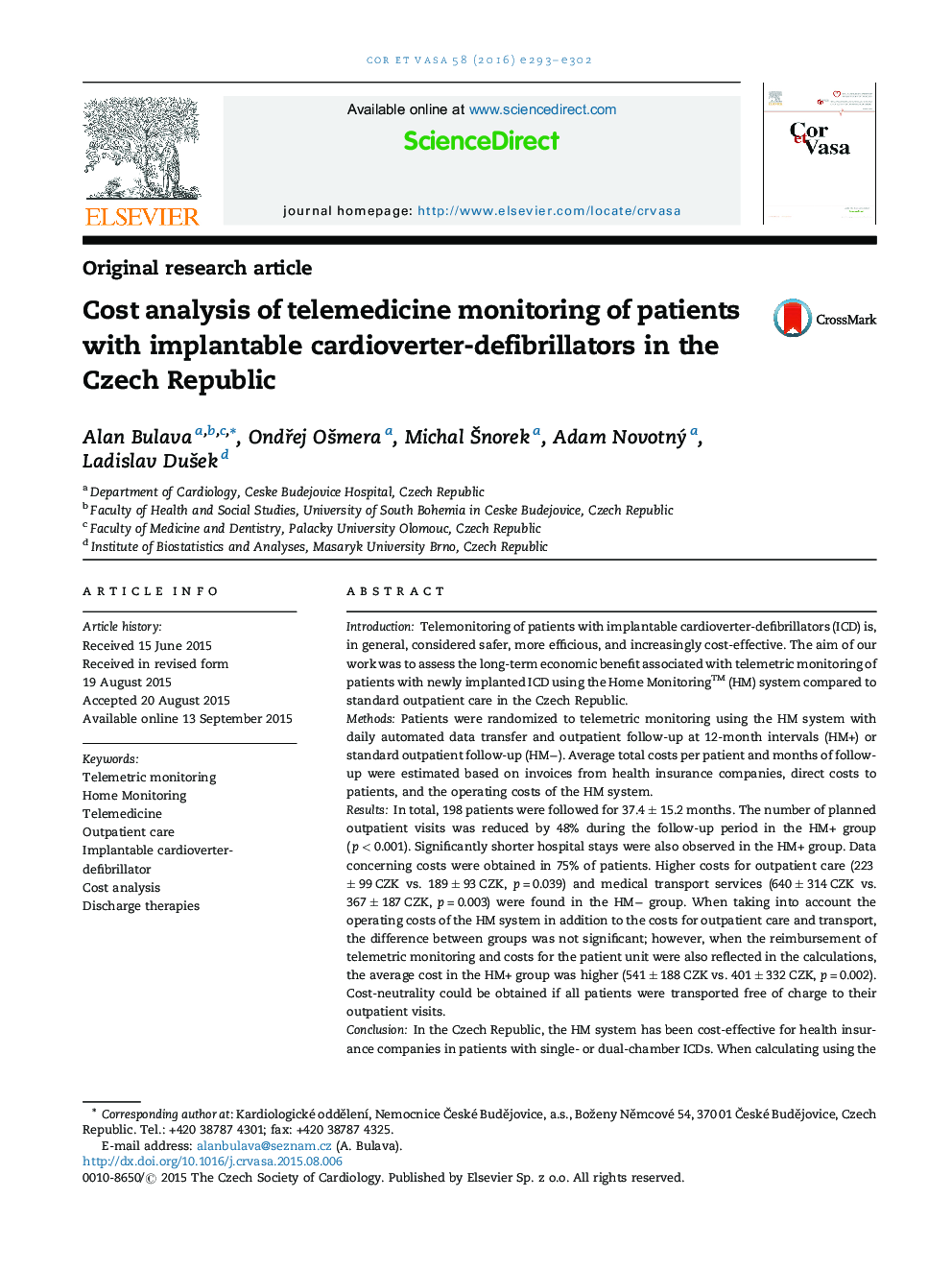| Article ID | Journal | Published Year | Pages | File Type |
|---|---|---|---|---|
| 2728275 | Cor et Vasa | 2016 | 10 Pages |
IntroductionTelemonitoring of patients with implantable cardioverter-defibrillators (ICD) is, in general, considered safer, more efficious, and increasingly cost-effective. The aim of our work was to assess the long-term economic benefit associated with telemetric monitoring of patients with newly implanted ICD using the Home Monitoring™ (HM) system compared to standard outpatient care in the Czech Republic.MethodsPatients were randomized to telemetric monitoring using the HM system with daily automated data transfer and outpatient follow-up at 12-month intervals (HM+) or standard outpatient follow-up (HM−). Average total costs per patient and months of follow-up were estimated based on invoices from health insurance companies, direct costs to patients, and the operating costs of the HM system.ResultsIn total, 198 patients were followed for 37.4 ± 15.2 months. The number of planned outpatient visits was reduced by 48% during the follow-up period in the HM+ group (p < 0.001). Significantly shorter hospital stays were also observed in the HM+ group. Data concerning costs were obtained in 75% of patients. Higher costs for outpatient care (223 ± 99 CZK vs. 189 ± 93 CZK, p = 0.039) and medical transport services (640 ± 314 CZK vs. 367 ± 187 CZK, p = 0.003) were found in the HM− group. When taking into account the operating costs of the HM system in addition to the costs for outpatient care and transport, the difference between groups was not significant; however, when the reimbursement of telemetric monitoring and costs for the patient unit were also reflected in the calculations, the average cost in the HM+ group was higher (541 ± 188 CZK vs. 401 ± 332 CZK, p = 0.002). Cost-neutrality could be obtained if all patients were transported free of charge to their outpatient visits.ConclusionIn the Czech Republic, the HM system has been cost-effective for health insurance companies in patients with single- or dual-chamber ICDs. When calculating using the reimbursement from payers of the healthcare, the HM system would remain cost-neutral only if most patients had reimbursed transportation costs. The clinical effect of telemetric monitoring is directly related to the continuity of follow-up and the possibility to detect events very early and to intervene accordingly; we thus believe that the HM system should be automatically paid for in all patients with an implantable ICD. The related increase in costs would be insignificant in the context of the entire healthcare budget.
